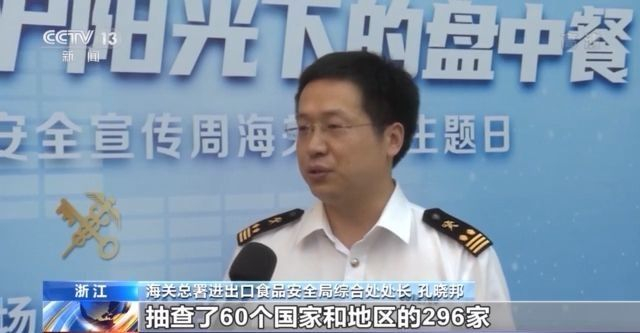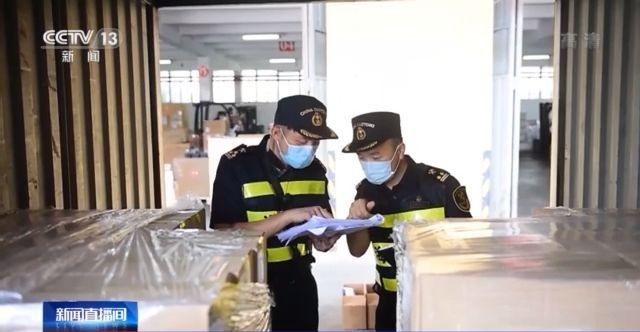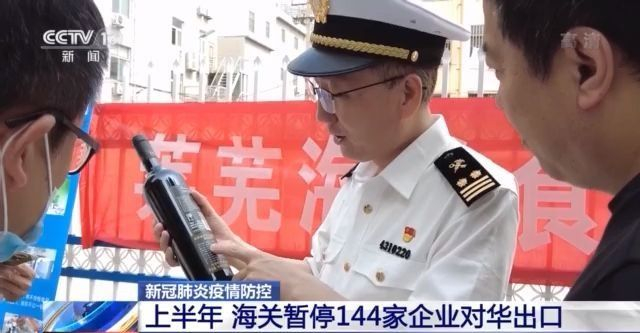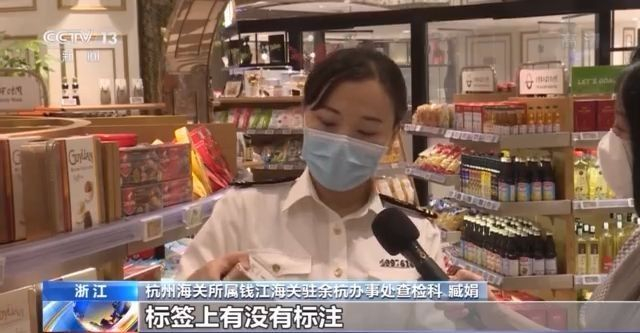Epidemic prevention is not relaxed! General Administration of Customs: In the first half of the year, 144 food enterprises were suspended from exporting to China.
The General Administration of Customs announced today (6th) that in the first half of this year, the national customs suspended the export to China of 144 food enterprises that suffered from the COVID-19 outbreak, and at the same time, returned or destroyed the risky imported food to prevent unqualified food from entering the country.
According to customs statistics, this year 1-mdash; In June, the national customs conducted a total of 1,098,700 samples of imported cold-chain food, animal and plant products for COVID-19 virus detection; A total of 27,114,400 imported cold-chain foods were supervised for preventive disinfection at ports.

Kong Xiaobang, Director of General Department of Import and Export Food Safety Bureau of General Administration of Customs:Since the outbreak of the epidemic, as of July 1st this year, we have randomly selected 296 overseas food enterprises in 60 countries and regions through remote video, and suspended the export of 144 overseas food enterprises with COVID-19 outbreak employees to China, effectively ensuring the safety of imported food in China.

At the same time, the customs strictly returns or destroys the imported food with risks to prevent unqualified food from entering the country. 1-mdash this year; In June, the national customs detected 1,070 batches of food that were not allowed to enter the country due to unqualified safety and hygiene items in port supervision, and all of them were returned or destroyed.

In addition, the customs has also enhanced the understanding of the safety of imported and exported food in various ways. Today, in addition to Hangzhou, other customs across the country have also launched the "National Food Safety Publicity Week" in 2021, with a variety of publicity, display and Q&A activities to publicize and interpret imported food safety and port food hygiene and safety laws and regulations to import and export enterprises and consumers, and strictly supervise imported food.

Zang Juan, Inspection Section of Qianjiang Customs Office in Yuhang, Hangzhou Customs:Consumers can first check whether the food is labeled or labeled in Chinese, and whether the product name, country of origin (region), ingredient list, production date and other information are marked on the label.

If there is no such Chinese label on imported food sold in the market, it can be regarded as an informal channel. Secondly, you can also ask the sellers for the Inspection and Quarantine Certificate of Entry Goods issued by the Customs or log on to the website of the General Administration of Customs to check whether the imported food meets the access requirements, so as to ensure that the imported food you buy is imported in compliance.